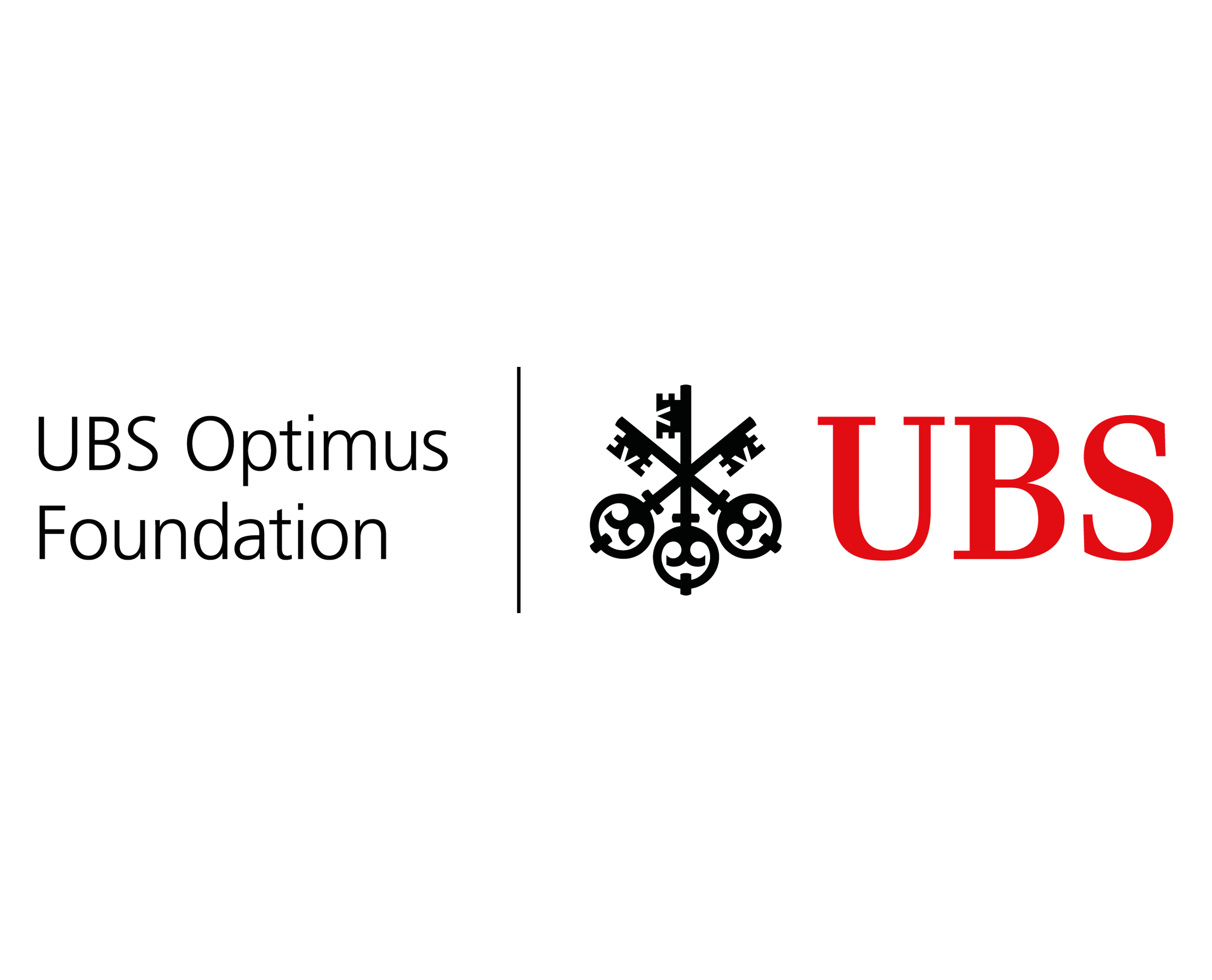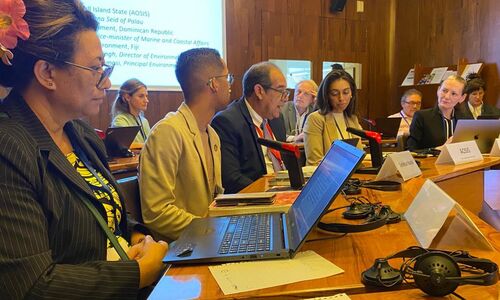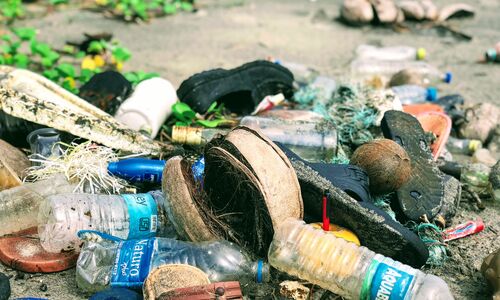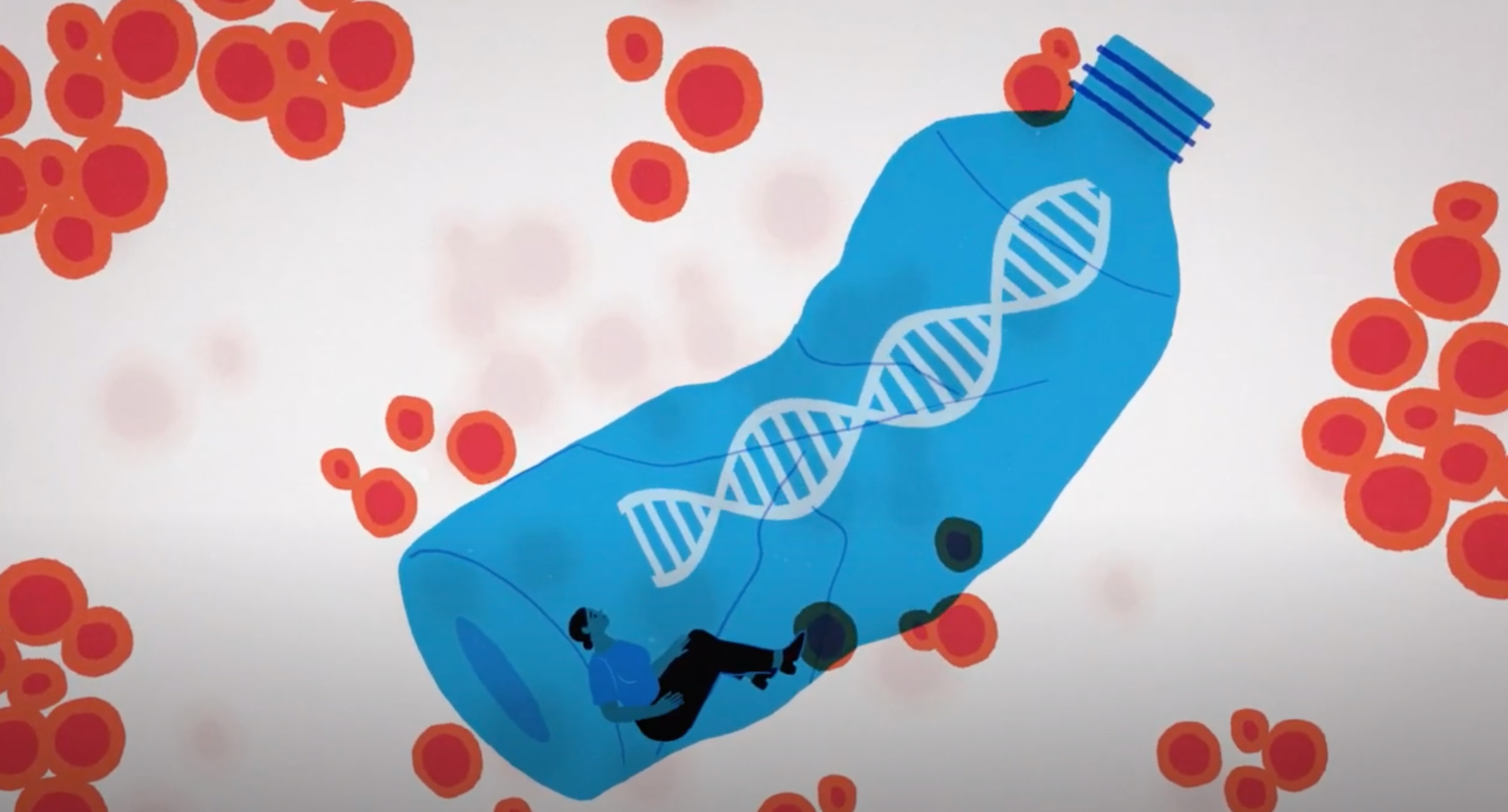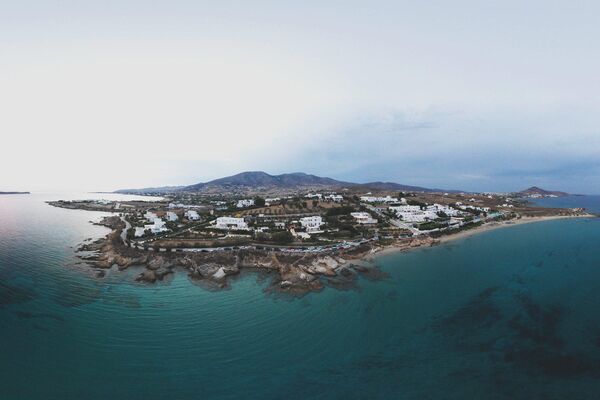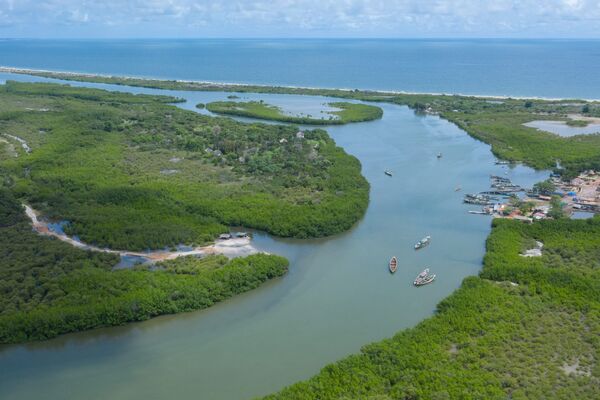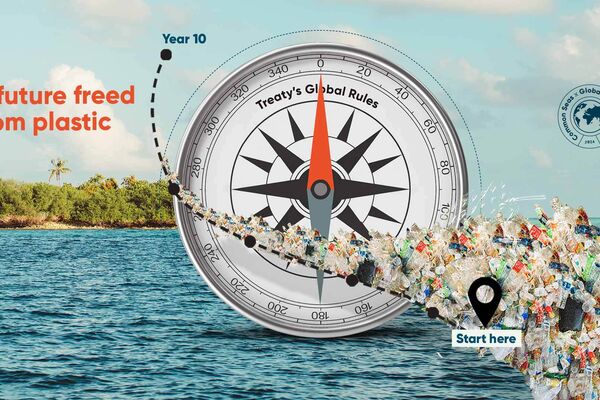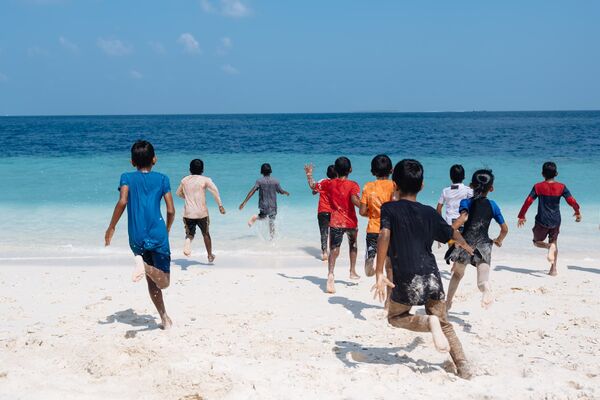Plastic waste costs billions to manage, while contaminating our living world and harming our health.
We provide governments with tools and technical expertise to gather data, calculate baselines, agree reduction targets, and design National Action Plans to stop plastic pollution.
Our unique, collaborative approach builds capacity and greatly improves national and regional understanding of the plastic problem. It also equips governments with the knowledge and authority to negotiate a robust UN Treaty.
Our tools create transparency and accountability, allowing governments to monitor, evaluate and report on their ongoing progress.
This work is enabled by Plastic Drawdown, a tool we developed in consultation with 24 governments around the world.
Plastic Drawdown models a country’s plastic footprint and analyses the potential impact of reduction policies. Our policy team then advises partners on policy design and implementation.
Plastic Drawdown is endorsed by the United Nations and its methodology was published in the Global Environmental Change Journal. It has been deployed in Barbados, Greece, Indonesia. Maldives, the Gambia, and the UK.
We support governments to understand their country’s plastic problem and identify the right solutions:
- Gather data and establish a national plastic baseline.
- Align critical stakeholders on a journey from problem to solution.
- Train teams on developing effective plastic reduction policies.
- Understand which policies will best tackle the plastic problem.
- Publish a National Action Plan to end plastic pollution.
- Be equipped with knowledge and authority to negotiate a robust UN Treaty.
- Become a global leader in tackling the plastic crisis.






